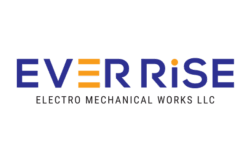The UAE’s construction sector is evolving rapidly, with Mechanical, Electrical, and Plumbing (MEP) contracting playing a crucial role in shaping the built environment. As we step into 2025, new trends and innovations are set to redefine the MEP industry. From sustainable solutions to smart technologies, the sector is adapting to meet the growing demands of efficiency, sustainability, and cost-effectiveness. This article explores the key MEP contracting trends in the UAE for 2025 and how they are transforming the industry.
1. Sustainable and Green MEP Solutions
Sustainability continues to be a top priority in the UAE, with government regulations pushing for eco-friendly construction practices. The MEP industry is embracing:
Energy-efficient HVAC systems: Advanced heating, ventilation, and air conditioning systems that reduce energy consumption.
Solar and renewable energy integration: Increased use of solar panels and other renewable energy sources.
Water-saving plumbing solutions: Smart water meters and low-flow fixtures to minimize water wastage.
LEED and Estidama certifications: Projects increasingly striving for green building certifications to comply with UAE sustainability goals.
2. Smart and Digital MEP Systems
With the rise of smart buildings, digital transformation is a game-changer in MEP contracting. Key trends include:
Building Information Modeling (BIM): 3D modeling for enhanced design, collaboration, and error reduction.
IoT-enabled MEP systems: Smart sensors for real-time monitoring and predictive maintenance.
AI and automation: AI-driven analytics optimizing energy consumption and system performance.
Digital twins: Virtual replicas of physical MEP systems to enhance decision-making and maintenance.
3. Modular and Prefabricated MEP Components
The construction industry in the UAE is moving towards prefabrication and modularization for greater efficiency. Benefits include:
Faster project completion: Prefabricated MEP components reduce installation time.
Cost-effectiveness: Minimizing waste and labor costs through factory-controlled production.
Improved quality control: Standardized components ensure higher precision and fewer on-site errors.
4. Regulatory Compliance and Safety Standards
The UAE has stringent safety and quality regulations for MEP contractors. In 2025, the focus will be on:
Updated fire safety codes: Enhanced measures to prevent fire hazards in high-rise buildings.
Stricter energy efficiency mandates: Compliance with UAE’s Energy Strategy 2050.
Advanced HVAC filtration systems: Improved air quality standards in commercial and residential buildings.
Worker safety protocols: Implementation of high-standard safety training and practices for MEP professionals.
5. Growing Demand for Retrofits and Upgrades
With aging infrastructure in some parts of the UAE, retrofitting and upgrading existing MEP systems is gaining momentum. Key areas include:
Energy retrofits: Upgrading HVAC, lighting, and water systems for efficiency.
Smart technology integration: Retrofitting older buildings with IoT and automation.
Compliance upgrades: Ensuring older buildings meet current MEP regulations and safety standards.
Conclusion
As the UAE continues to push the boundaries of innovation in construction, MEP contracting is evolving to meet the demands of sustainability, technology, and efficiency. By adopting smart solutions, prioritizing green practices, and adhering to stringent regulations, MEP contractors in the UAE are well-positioned for a transformative 2025. Companies that stay ahead of these trends will not only remain competitive but also contribute to the UAE’s vision of a smart and sustainable future.
